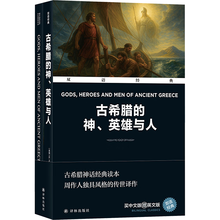The city of Athens had greatly increased in might since it was rid of its lords. The manner of the removal was this. For a while after Hipparchus had been killed——this Hipparchus, with Hippias, his brother, had received the lordship from Pisistratus, his father, and he had been killed at the festival of Athene the cruel reign was more alarming than before. Now there was in Athens a great house, the sons of A lcmeon, that had been sent away by the children of Pisistratus. At the first indeed joining with others who were in same case, they sought to obtain their return by force, building a fort on Mount Parnes, from where they might attack the city, but they accomplished nothing. Then they devised this device. They made an agreement with the council of the Amphictyons that they would build the temple of Apollo that is in Delphi for a certain sum of money. But in the building they made all things fairer than ac- cording to the letter of the agreement and this they could do by reason of their great wealth and especially, when it had been a- greed that they should use common stone in the building of the temple, they used thereof marble of Paros for the front After this they persuaded the Pythia with a sum of money that whenever any men from Sparta came to ask her counsel, whether they came on their own affairs or the affairs of the State, she should bid them set free the city of Athens. When this message had come to the Lacedaemonians many times, they sent one of their chief cit- izens with an army to drive out the children of Pisistratus from A- thens. And this they did, though the men were dear friends to them, for they judged it well to prefer the bidding of the Gods to the friendship of men. This army came by sea and landed at Phalerus. And when the sons of Pisistratus heard of it, they sent for help to Thessaly, with which country they had alliance, and there came to them from Thessaly a thousand horsemen, under Cineas, King of Thessaly. With them they attacked the camp of the Lacedaemoni- ans, and killed not a few of them, among whom was the captain of the army, and drove those who were left into their ships.<br> After this the Lacedaemonians sent another army, greater than before, under King Cleomenes, not in ships but by land. Likewise, as soon as they had crossed the borders, they were attacked by the horsemen of the Thessalians.They could not stand, but fled back without delay into their own land. Then Cleomenes, coming to the city and taking to him such an idea as to drive out from Athens its lords, attacked the sons of Pisistratus in the Pelasgian fort; but they did not accomplished their purpose-for they didn't want to make a long siege of the fort, and the sons of Pisistratus had meat and drink in abundance——but would have remained a few days, if not, they would depart early. The sons of Pisistratus sought to send their children out of the country secretly; but the children were taken. Then they made an agreement with the Athenians that, if the chil- dren should be given back to them, they would depart the country within five days. And this they did, their house having had the lord- ship for thirty years and six. Thus was what Athens got rid of its lords.<br> Aristagoras, then coming to this city of Athens, presented him- self before the people, and said the same words that he had said before in Sparta, about the good things in Asia, and about the man- ner of fighting of the Persians, how they had neither spear nor shield, and were therefore easily to be conquered. Also he said that the Milesians were settlers from Athens, and that it was just be- cause of this that the Athenians, being so powerful, should deliver them from slavery. And because his need was great, there was noth- ing that he did not promise, till at the last he persuaded them. For it is easier, it seems, to deceive a multitude than to deceive one man. Cleomenes the Spartan, being but one man, Aristagoras could not deceive; but he brought over to his purpose the people of A- thens, being thirty thousand. So the Athenians, being persuaded, made a decree to send twenty ships to help the men of Ionia, and appointed one Melanthius, a man of reputation among them, to be captain. These ships were the beginning of trouble both to the Greeks and the non-Greeks.<br> ……
展开










